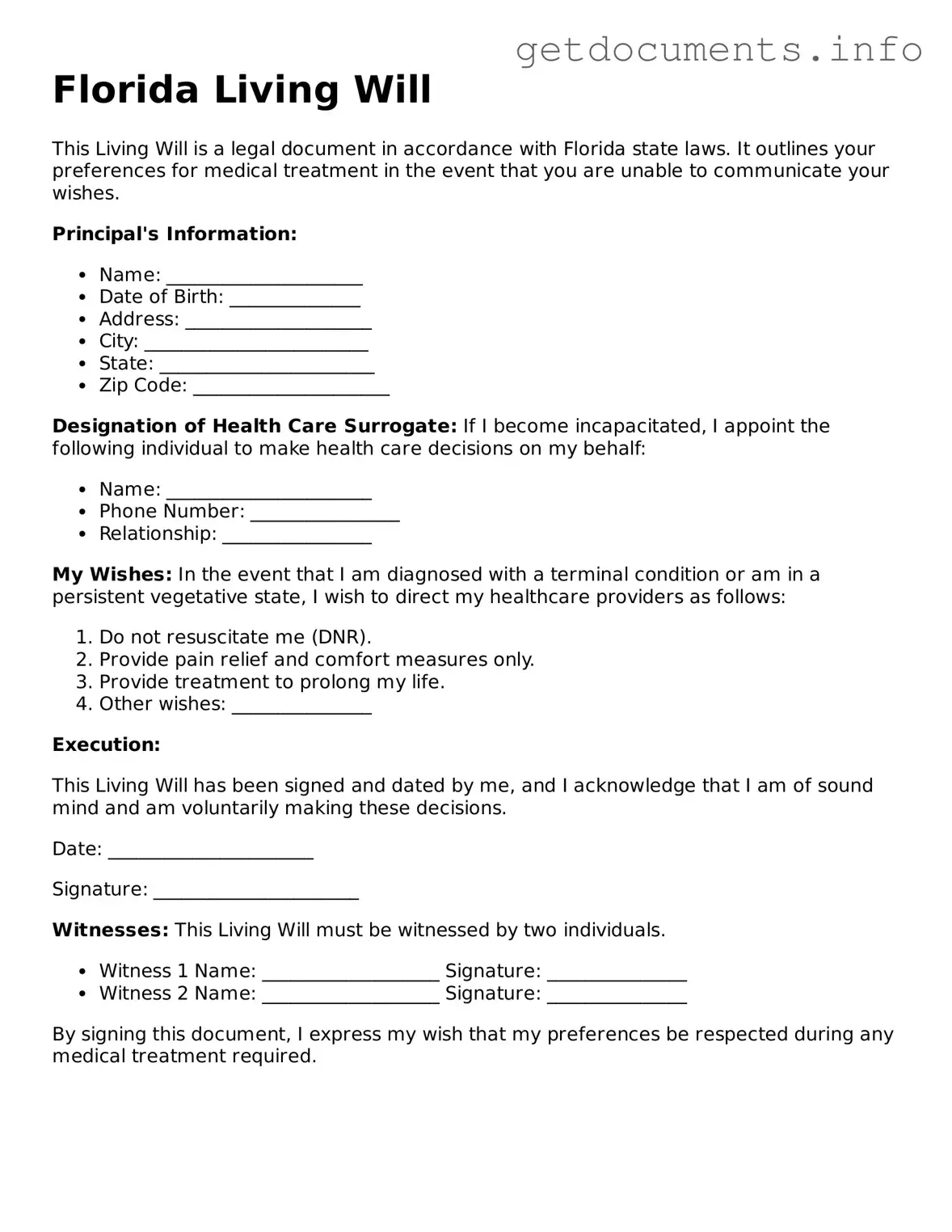Free Living Will Template for Florida
A Florida Living Will form is a legal document that allows individuals to express their wishes regarding medical treatment in case they become unable to communicate those wishes themselves. This important form ensures that your healthcare preferences are honored, providing peace of mind for both you and your loved ones. If you want to take control of your medical decisions, consider filling out the form by clicking the button below.
Access Living Will Editor

Free Living Will Template for Florida
Access Living Will Editor
Got places to be? Complete the form fast
Fill out Living Will online and avoid printing or scanning.
Access Living Will Editor
or
⇩ PDF File
